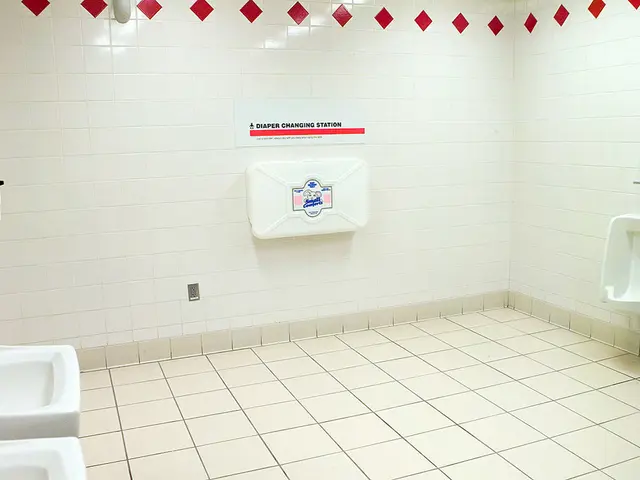Delays in FEMA Aid Approvals Cause Disaster-Stricken States to Remain in a State of Suspense
Struggling states plead for Trump's help amidst disasters, but President Trump remains unresponsive. The urgency for aid following tornadoes, floods, and storms has left officials — and the affected communities — in a lurch, as Trump withholds hands-off FEMA funding. The message is clear: Trump isn't ready to step in.
In Walthall County, Mississippi, yet to heal from March's tornado devastation, the local emergency management director, Royce McKee, echoes the sentiment. "We're like treading water here," he admits, referencing the county's finances that simply cannot handle the cleanup costs without FEMA's assistance. The tragic event left seven lives lost, 671 homes wrecked, and a staggering $18.2 million in public damages — yet no relief in sight. Governor Tate Reeves put in a disaster request on April 1, but it still lingers, unsigned by the White House.
Trump's callous remark about FEMA being "super slow" in January reverberates now, as the public questions his handling of catastrophic events. The shuffle within FEMA didn't help; Trump replaced former FEMA leader Cameron Hamilton with David Richardson, who boasts no prior experience in emergency management. Senator Josh Hawley begged Homeland Security Secretary Kristi Noem to expedite disaster aid requests from Missouri that have been stagnant since early April. The picture is grim, with people desperately in need of assistance.
Observers suggest that this seemingly callous approach to disaster relief may be part of a broader strategy by Trump to revamp the system. He aims to phase out FEMA post-2025 hurricane season, pushing states to carry more financial responsibility in disaster management. The administration also discusses stringent requirements for states to qualify for federal aid, with Trump insisting that governors manage disaster recovery independently.
As of late May, Trump had approved fewer than half of the 17 disaster declaration requests, delaying assistance for affected states. Approved aid covers mostly public assistance, individual assistance, or the Hazard Mitigation Grant Program (HMGP), with some states like Virginia and Arkansas initially denied HMGP funds. The establishment of a FEMA review council under Trump also aims to restructure FEMA, a move supported by Virginia Governor Glenn Youngkin, who critiques the current system as inherently flawed.
In essence, the prolonged delays in disaster relief approvals are linked to both communication issues between the White House and FEMA, as well as broader policy shifts aiming to overhaul FEMA and disaster response mechanisms.
- Despite the emergency management director in Walthall County, Mississippi pleading for aid following the devastating tornado, President Trump remains unresponsive, leaving communities in dire need.
- Senator Josh Hawley has urged Homeland Security Secretary Kristi Noem to expedite disaster aid requests from Missouri, which have been delayed since early April.
- The prolonged delays in disaster relief approvals seem to be connected to communication issues between the White House and FEMA, as well as broader policy shifts aiming to overhaul FEMA and disaster response mechanisms.
- In the face of ongoing war-and-conflicts, weather-related disasters, car-accidents, crime-and-justice, policy-and-legislation, general-news, and other crises, affected states are grappling with delayed assistance from the federal government.








